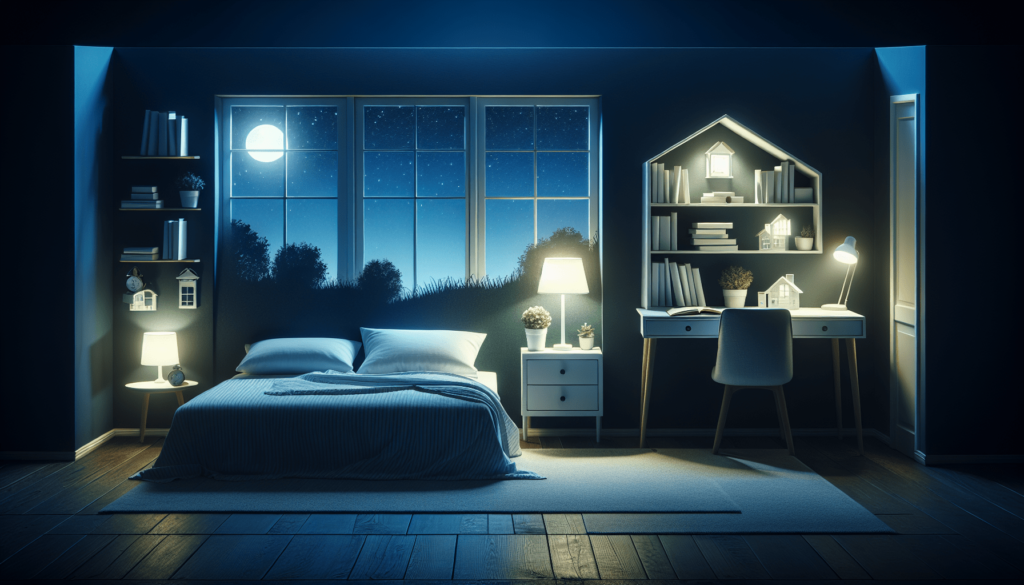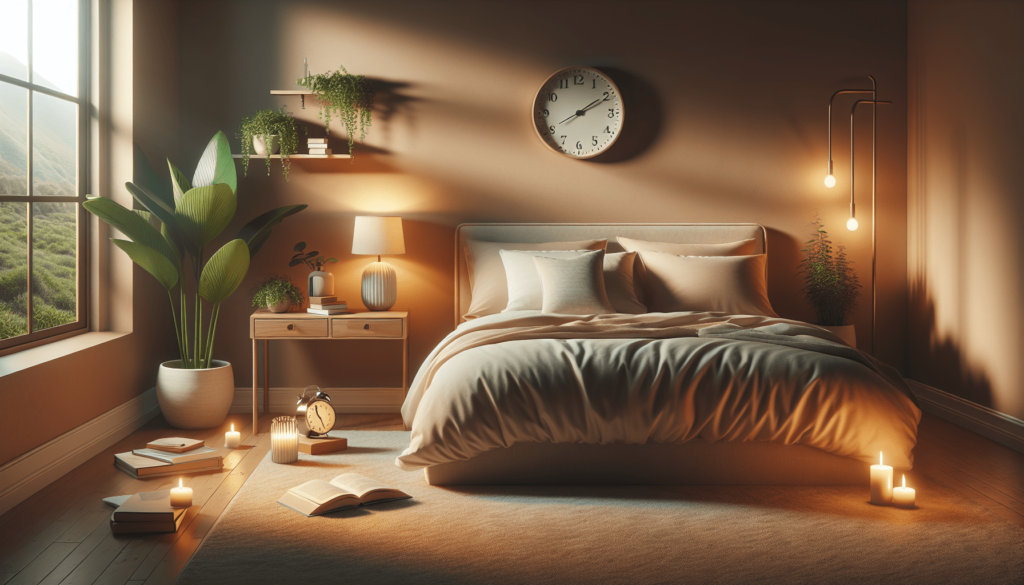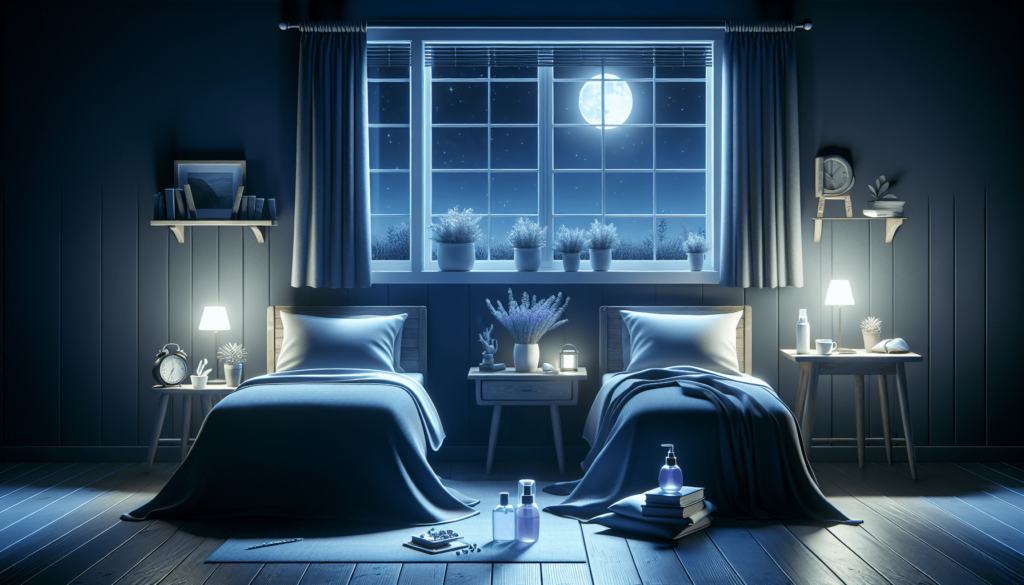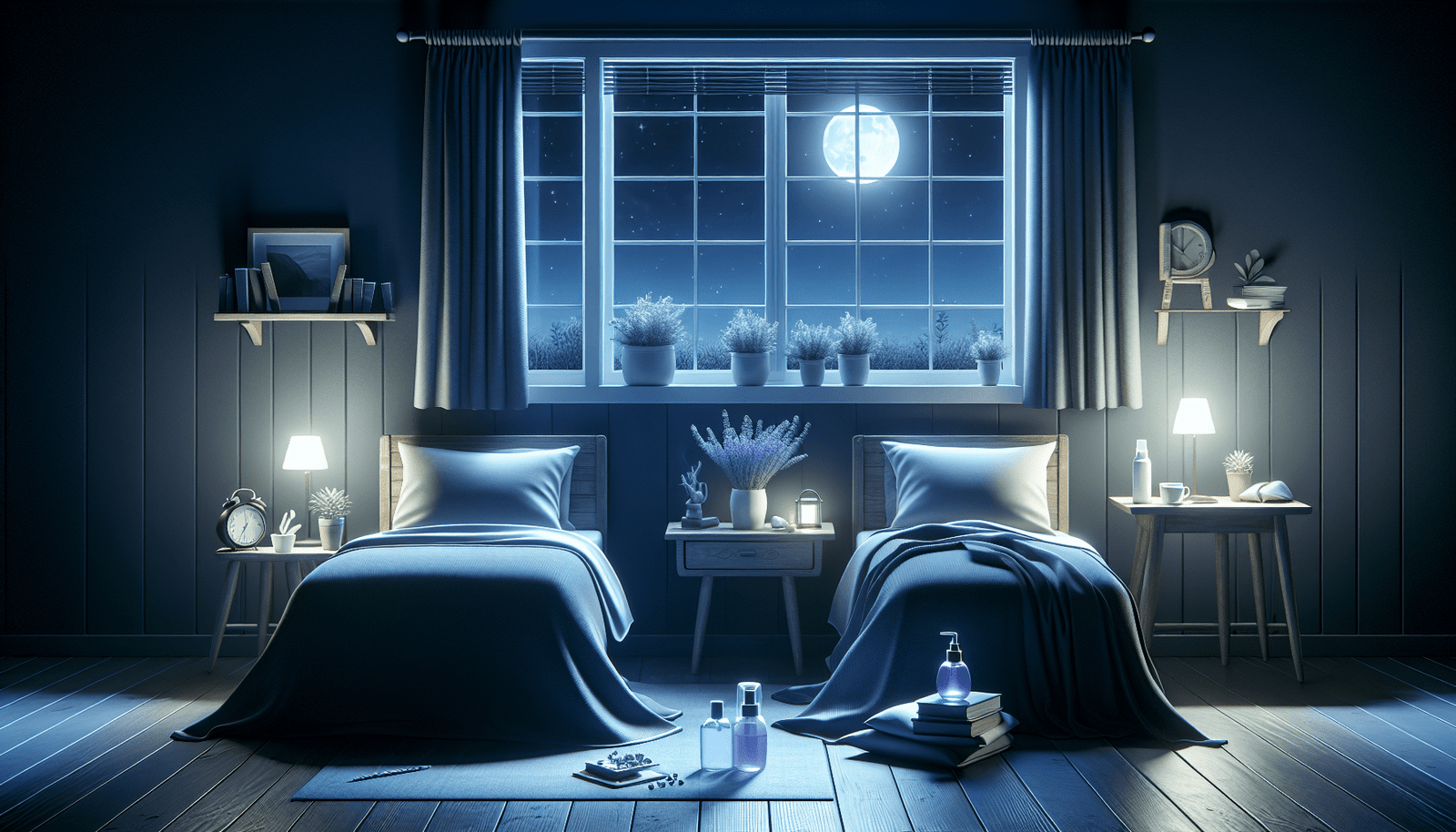Are you tired of tossing and turning all night, desperately searching for a way to improve your sleep? Look no further! In this article, we will explore the secrets to enhancing your sleep hygiene. With simple and practical tips, you’ll be able to create a relaxing environment and establish a bedtime routine that will have you drifting off to dreamland in no time. So say goodbye to sleepless nights and hello to a blissful night’s rest!

Establish a Consistent Sleep Schedule
Getting a good night’s sleep starts with establishing a consistent sleep schedule. This means going to bed and waking up at the same time every day, even on weekends. By sticking to a regular bedtime, your body will become accustomed to a specific sleep pattern, making it easier to fall asleep and wake up feeling refreshed. Avoid the temptation to stay up late or sleep in, as this can disrupt your body’s natural sleep-wake cycle. Additionally, it is important to avoid taking naps during the day, as this can make it more difficult to fall asleep at night.
Create a Calming Sleep Environment
Creating a calm and relaxing sleep environment can greatly improve the quality of your sleep. Start by keeping your bedroom cool and well-ventilated. Studies have shown that a cooler room temperature, around 60-67 degrees Fahrenheit (15-19 degrees Celsius), promotes better sleep. Make sure your mattress and pillows are comfortable and supportive, as an uncomfortable bed can lead to aches and pains that can disrupt your sleep. Eliminate any unnecessary noise and excessive light that may be present in your bedroom. Consider using earplugs, white noise machines, or window coverings to block out noise and light. Lastly, it is best to remove electronic devices such as smartphones, tablets, and televisions from the bedroom, as the blue light emitted from these devices can interfere with your melatonin production and disrupt your sleep.

Practice Relaxation Techniques
Engaging in relaxation techniques before bed can help signal your body that it’s time to wind down and prepare for sleep. Establishing a calming bedtime routine can work wonders for improving your sleep hygiene. This can be as simple as taking a warm bath, reading a book, or practicing a few minutes of deep breathing exercises. Deep breathing exercises involve taking slow, deep breaths in through your nose and exhaling slowly through your mouth. This can help relax your body and clear your mind of any racing thoughts. For those who prefer a more structured approach, meditation or mindfulness practices can also be beneficial. These techniques help promote relaxation and can be particularly helpful for individuals who struggle with anxiety or racing thoughts at bedtime. Additionally, listening to soothing music or white noise can create a calming atmosphere in your bedroom and drown out any background noise that may be disturbing your sleep.
Limit Stimulants and Avoid Heavy Meals
What you consume throughout the day can significantly impact your sleep quality. It is important to reduce or eliminate your caffeine intake, especially in the afternoon and evening. Caffeine is a stimulant that can interfere with your ability to fall asleep and stay asleep. Be mindful of hidden sources of caffeine, such as certain medications, energy drinks, and even chocolate. It is also advisable to avoid consuming alcohol before bedtime. While alcohol may initially make you feel drowsy, it can disrupt your sleep patterns and result in poor-quality sleep. Instead of heavy or rich meals, opt for lighter options in the evening. Heavy meals can cause discomfort and indigestion, making it more difficult to fall asleep. Additionally, try to avoid eating too close to bedtime, as this can also lead to digestive issues and disrupt your sleep cycle.

Exercise Regularly
Regular exercise is not only beneficial for your physical health but also for improving sleep quality. Engaging in moderate-intensity exercise during the day can help promote better sleep at night. Exercise helps to release endorphins, reduce stress, and tire your body out, making it easier to fall asleep. However, it is important to avoid vigorous exercise close to bedtime, as this can actually have the opposite effect and stimulate your body, making it harder to wind down for sleep. Aim to finish your workout at least a few hours before bedtime to allow your body temperature to cool down and promote relaxation.
Manage Stress and Anxiety
Stress and anxiety can significantly impact your ability to fall asleep and stay asleep. It is crucial to identify and address the sources of stress in your life. This may involve making lifestyle changes, seeking support from loved ones, or seeking professional help from a therapist or counselor. There are various stress management techniques that can help promote relaxation and improve your sleep hygiene. Yoga, for example, combines physical movement with mindfulness and deep breathing exercises, helping to calm both the body and mind. Journaling is another effective technique for managing stress and anxiety. By writing down your thoughts and emotions before bed, you can unload any worries or concerns, allowing your mind to relax and drift off to sleep. If stress and anxiety persist, it is important to seek professional help from a healthcare provider or therapist who can provide guidance and support.

Establish a Relaxing Bedtime Routine
Establishing a relaxing bedtime routine can signal to your body that it’s time to unwind and prepare for sleep. Engage in activities that promote relaxation and help calm your mind. This could include reading a book, practicing gentle stretching or yoga, or taking a warm bath. Avoid stimulating tasks or screens before bed, as the blue light emitted from electronic devices can interfere with your melatonin production and make it harder to fall asleep. Instead, create a peaceful and screen-free environment in the hour leading up to bedtime. By consistently following a relaxing bedtime routine, you can condition your body and mind to associate these activities with sleep, making it easier to fall asleep and stay asleep throughout the night.
Ensure Sufficient Exposure to Natural Light
Exposure to natural light plays a crucial role in regulating your body’s sleep-wake cycle, also known as your circadian rhythm. It is important to expose yourself to natural light during the day, especially in the morning. This can be done by spending time outside or by opening curtains or blinds to let natural light into your home or workspace. Natural light helps to suppress the production of melatonin, a hormone that promotes sleep, and signals to your body that it’s time to be awake and alert. By ensuring sufficient exposure to natural light during the day, you can help regulate your circadian rhythm and improve your sleep quality.
Avoid Clock-Watching
Constantly checking the time can create anxiety and stress, especially if you find yourself awake during the night. To promote better sleep, it is advisable to remove or cover clocks in your bedroom. This can help reduce anxiety and prevent you from fixating on how much time has passed since you last looked at the clock. If you wake up during the night and find it difficult to fall back asleep, try to resist the temptation to check the time. Instead, focus on relaxation techniques such as deep breathing or gentle stretching, and trust that your body will eventually return to sleep. By breaking the habit of clock-watching, you can alleviate unnecessary stress and create a more peaceful sleep environment.
Consider Sleep Aids if Necessary
If despite your best efforts, you continue to struggle with getting a good night’s sleep, it may be worth considering sleep aids. It is important to consult a healthcare professional before starting any sleep medication to ensure it is safe and appropriate for your specific situation. A healthcare professional can provide guidance on the potential benefits and risks of sleep aids and help you determine the best course of action. However, if you prefer a more natural approach, there are also alternative remedies available. Herbal supplements, such as valerian root or chamomile, have been traditionally used to promote relaxation and improve sleep. Additionally, aromatherapy using essential oils like lavender or bergamot can help create a soothing sleep environment. It is important to note that while these remedies may be helpful for some individuals, they may not work for everyone, and it is always best to consult with a healthcare professional before trying any new sleep aids or remedies.
In conclusion, improving your sleep hygiene requires a combination of consistent habits and a conducive sleep environment. By establishing a consistent sleep schedule, creating a calming sleep environment, practicing relaxation techniques, limiting stimulants and heavy meals, exercising regularly, managing stress and anxiety, establishing a relaxing bedtime routine, ensuring sufficient exposure to natural light, avoiding clock-watching, and considering sleep aids if necessary, you can greatly enhance your sleep quality and wake up feeling refreshed and rejuvenated. Remember, adopting healthy sleep habits takes time and patience, but the benefits to your overall well-being are well worth the effort. Good night, and sleep tight!
